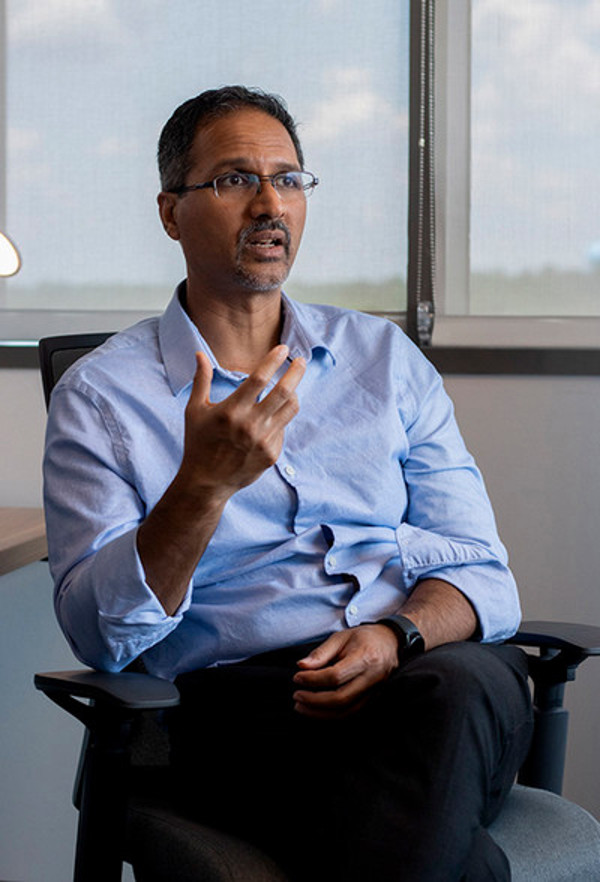
Emory University is revolutionizing care for cancer, heart disease, diabetes and other common diseases on a global scale. Spearheading this transformation is the Empathic AI for Health Institute (AI.Health). Launched in fall 2023, AI.Health is part of AI.Humanity, a university-wide initiative dedicated to shaping the artificial intelligence revolution to better human health, generate economic value and promote social justice.
The institute’s mission is three-fold: creating accessible and affordable AI innovations for health care, implementing AI within Emory Healthcare to directly benefit patients and ultimately scaling these advancements for global impact.
Anant Madabhushi, PhD, serves as the executive director of AI.Health. With a primary appointment in the Department of Biomedical Engineering, Madabhushi also holds secondary appointments in the Departments of Radiology and Imaging Sciences, Biomedical Informatics (BMI), Urology, Radiation Oncology, Global Health and Pathology. He shares his insights about the future of the institute, the advantages of a multidisciplinary team and the importance of collaboration.
What are some key challenges facing the health care system today?
The U.S. health care enterprise is the most expensive in the world, yet we rank low in terms of life expectancy and overall quality of life. 42% of newly diagnosed Americans with cancer will lose their life savings due to medical costs.
We must address all of the issues that are part of the health care enterprise including financial toxicity. If we want to advance medicine for patients, we can't only think about it from the narrow confines of health. We have to think about the financial piece and the economic side of things.
That is why the work that we are doing is crucial. We’re approaching it from a pluralistic, multifaceted perspective, thinking about how we improve health and optimize medicine for our patients. At the same time, we do it in a way that is affordable, accessible and equitable, so that we can reduce this issue of financial toxicity.
Discuss the importance of having a diverse clinical staff and your partnership with Emory Healthcare. How do these contribute to your mission of bridging the gap with the community in advancing AI knowledge?
The mission of the institute is multidisciplinary, requiring experts in computer science, biomedical engineering and various medical fields to work together. This collaboration helps identify and solve clinical needs. We truly embody this concept of research, and it is a fact that none of this can happen in a vacuum. The AI scientists need to work closely with the physicians to understand the clinical needs. Where are the unmet clinical problems, and what are the problems we need to solve?
Diverse perspectives are crucial, not just for technical expertise but also for addressing ethical issues and ensuring AI tools are equitable across different populations. Having a plurality of voices and diversity in your team is critical to provide these technologies to patients and impact different populations.
As the institute director, how do you view your role in promoting ethical practices and addressing bias in artificial intelligence?
As the institute's director, the focus on ethical AI and addressing bias from the outset must come from the top, which is why it has been part of our research's DNA.
I’m very proud of the team we lead here, which has grown to nearly 60 people in a very short period. Our group is very diverse culturally and geographically, and that brings a responsibility to develop universally accessible tools that work well for everyone.
Learn more about the Emory Empathetic AI for Health Institute.
